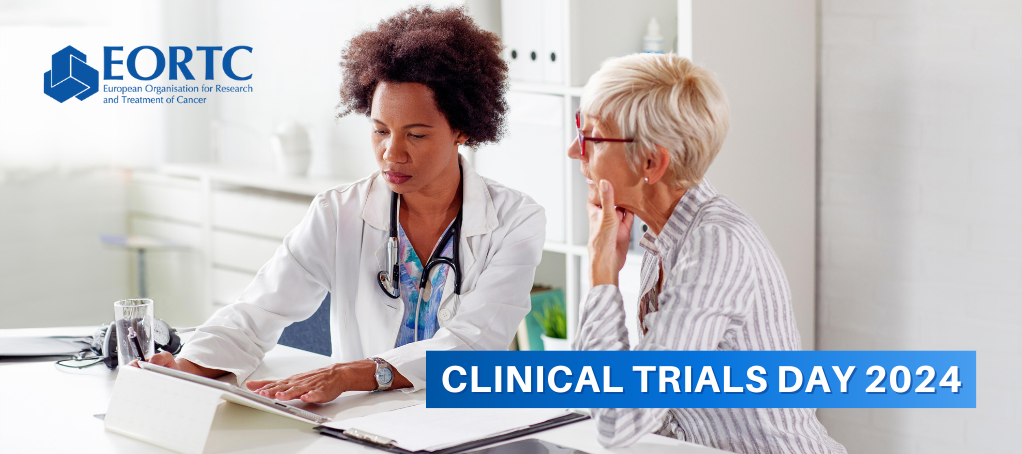Clinical Trials Day 2024: a Q&A on pragmatic clinical trials
20 May 2024
Over the last ten years, Clinical Trials Day has celebrated achievements from the clinical research community and has shed light on the importance of advancing progress in treatment and care for the benefit of patients.
Pragmatic clinical trials represent an innovative approach to advancing the landscape of clinical cancer research, that not only seeks to enhance the effectiveness of cancer therapies but also to ensure their practical applicability in the real-world scenarios faced by patients and healthcare providers. Cancer therapy improvement trials encompass treatment optimisation often addressed through the conduct of pragmatic clinical trials. While these clinical trials exhibit distinct design features, they are crucial for advancing cancer care, enhancing treatment methods, and gaining insights into the practical effectiveness of cancer therapies in real-world scenarios.
What is a pragmatic clinical trial?
A pragmatic clinical trial is a clinical trial conducted in everyday clinical settings that evaluates treatment effectiveness while maximising applicability and generalisability to patients with a specific cancer type under investigation. Pragmatic trials prioritise essential eligibility criteria, ensuring that the majority of patients can access them. These trials collect only relevant data aligned with daily medical practice. They focus on measuring endpoints that are clinically meaningful for doctors and have a significant impact on patients.
Why do we need pragmatic clinical trials?
To understand how treatments work in everyday clinical practice.
How do we conduct them?
These trials measure a broad spectrum of patient-centred outcomes and are conducted in everyday clinical settings, offering a more realistic reflection of diverse patient populations. They pose simple questions, demand minimal essential data, and can significantly impact patients across various clinical settings.
What is the goal of pragmatic clinical trials?
Overall, pragmatic clinical trials aim to inform doctors, patients, and healthcare systems how to best utilise therapeutic interventions focusing on outcomes that matter to patients.
Why does EORTC focus on pragmatic clinical research?
EORTC recognises the imperative to bridge the gap between traditional clinical research settings and the complexities of real-world healthcare. Standard clinical trials, while rigorous, may not fully capture the diversity of patients, clinical practices, and outcomes encountered in everyday medical settings. This realisation prompted a shift toward more practical approaches, giving rise to the importance of pragmatic clinical trials. These trials, now integral to EORTC’s efforts, are designed to evaluate the effectiveness of cancer treatments in routine practice conditions. By considering a broader patient spectrum and emphasising patient-centred outcomes, pragmatic trials provide evidence that is not only scientifically robust but also directly applicable to the challenges faced by patients, healthcare providers, and policymakers in the real world.
Since 1962, EORTC’s mission is to improve cancer patient survival and quality of life. As Europe’s leading cancer multidisciplinary clinical research organisation, EORTC develops, conducts, coordinates and stimulates leading clinical research to evaluate and compare the most effective treatment options for adolescent and adult cancer patients across cancer types and national borders.
“Pragmatic clinical cancer trials embody a patient-centric approach to cancer treatment care. Unlike traditional drug efficacy-focused studies, these trials aim to balance benefits and risks, drawing from real-world patient experiences and patient preferences. With broader eligibility criteria, they mirror clinical practice closely, exploring dose reduction, treatment duration, and combination therapies. Moreover, they address gaps in rare cancer research by adapting trial designs accordingly.”
– Dr Denis Lacombe, EORTC CEO
Related News
Meet the new EORTC Board
9 Jul 2024
We are pleased to announce the release of the EORTC 2023 Annual Report
17 Jun 2024
Dr Denis Lacombe, EORTC CEO, appointed stakeholder co-chair of ACT EU advisory group
24 May 2024
EORTC/EMA workshop suggests an international way forward for treatment optimisation studies
8 May 2024
EORTC’s Participation at the ESTRO Congress 2024
29 Apr 2024
EORTC: Advancing research and treatment for rare cancers
29 Feb 2024
EORTC Fellowship Programme: celebrating more than 20 years of impactful collaboration
22 Feb 2024
Appointment of Malte Peters as EORTC Strategic Alliance Officer
9 Feb 2024
Unique series of workshops in partnership with the European Medicines Agency (EMA)
7 Feb 2024
EORTC launches a prominent clinical trial in older patients with locally advanced (LA) HNSCC (Head and Neck Squamous Cell Carcinoma)
14 Dec 2023


